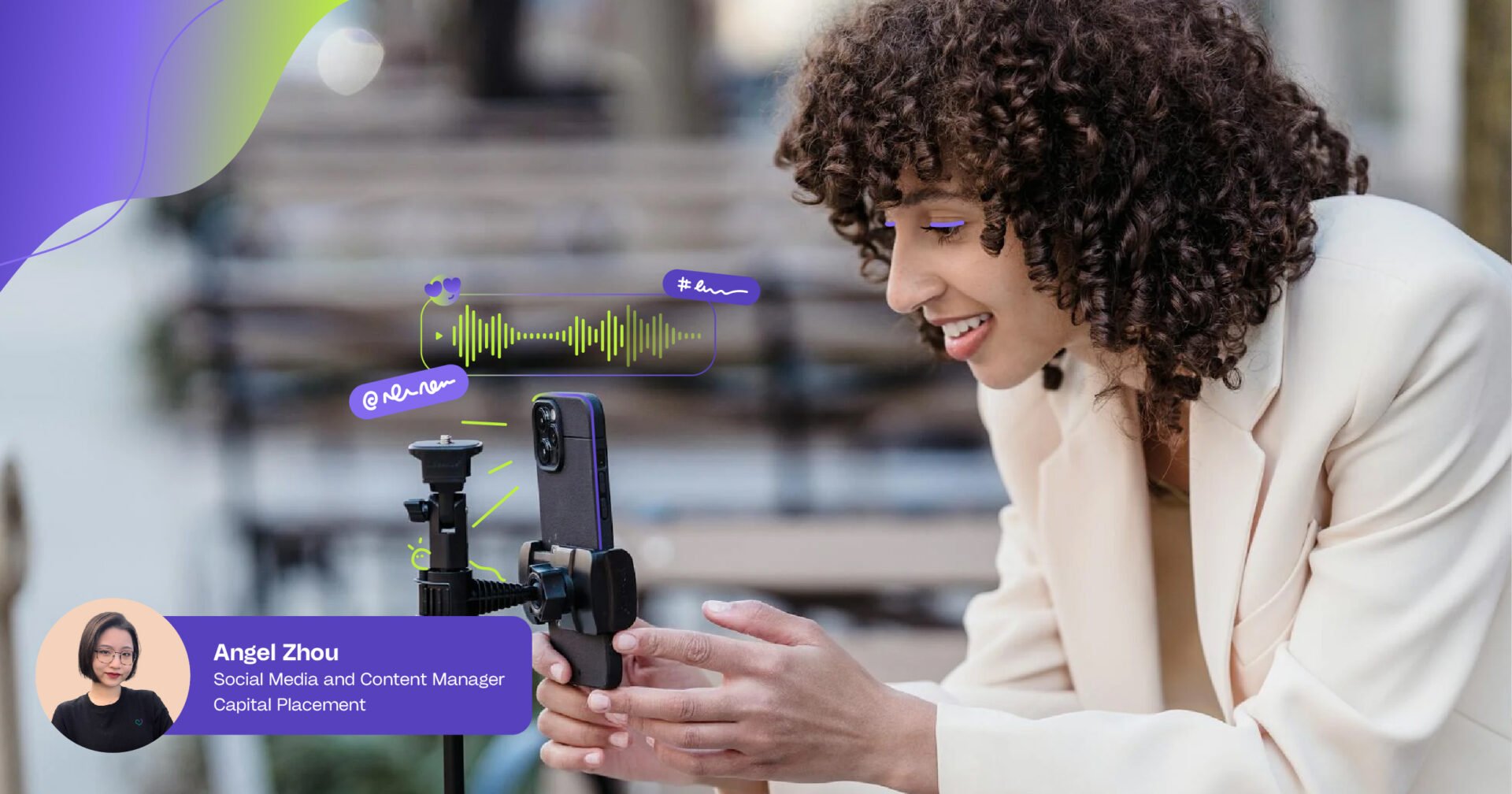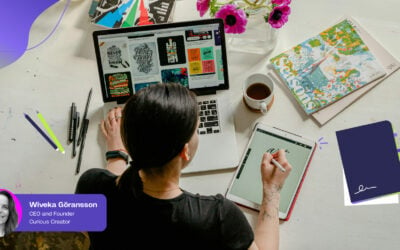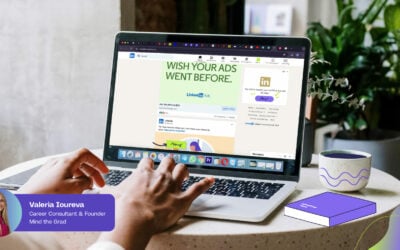
A little over a decade ago, people scoffed at the idea of a social media marketing career but today, most won’t think twice about it—and there’s a good reason why.
When social media was all about networking, playing simple games with your online friends and building fandoms, people weren’t thinking about a career in social media. Things started to change only when platforms like Facebook, Twitter, Instagram, etc., skyrocketed in popularity. Larger and larger groups of people flocked to them, and for most businesses, such a diverse audience had never been within reach before. Every company can now spot its core consumer base and cater content directly to them.
It was easy, accessible and affordable—despite present-day influencer marketing carrying a very pricey tag. So, the demand for people who can effortlessly navigate social media and ‘speak its language’ increased significantly. Suddenly, we saw the birth and growth of several roles, such as social media coordinators, brand managers, and a dozen others.
Universities started teaching courses on social media marketing, companies started spending thousands on social media strategies. Plus so many tools that could help you get the most out of your content were created to address this need.
Fast-forward to 2024, the present, and things are changing rapidly. Much of the ‘old guard’ of social media platforms is either being dethroned, getting revamped, or adapting to stiff competition. In the midst of all of this is Artificial Intelligence (AI), a new and not-yet-fully-defined technology which challenges humans to remodel how we think and work.
With all this uncertainty, is it wise to pursue a social media marketing career? In conversation with Capital Placement’s Social Media and Content Manager Angel Zhou, we cover the biggest questions around social media this year—and what you should consider before taking the leap.
Public opinion on social media usage
In 2024, an overwhelming number of social media platforms serve every demography and purpose. From the old, well-known ones like TikTok, Instagram, Snapchat and X (formerly Twitter) to newer contenders like Bluesky, Lemon8 and Threads, there’s a lot to choose from.
Yet instead of indefinite growth in social media users, we’re seeing more people taking ‘breaks’ from social media or phasing it out of their lives lately (known as a ‘dopamine detox’). Many cite distractions, information overload and poor mental health as reasons for these detoxes.
Q: How do we cope with social media fatigue?
Angel: “Social media should be entertaining, like when you watch a movie and feel better at the end of it. When it comes to all the platforms, instead of choosing which one to go to because there are new ones, choose the one that makes you the happiest. When you see something—maybe your friend got engaged you’re struggling with your personal life—and it gives you a bit of anxiety, you have the power to just not use it (the platform).
You need to identify that there is an issue first. The thing with social media is that platforms make you addicted to them. Once you are addicted to it, it’s becomes a habit to use it daily. Most people might not be able to identify a negative emotion until they feel burnt out—until you feel like enough is enough.
A 2024 report showed that ‘67% of adolescents report feeling worse about their own lives as a result of their social media use’. There’s even a correlation between depression and the use of social media.
So, there are many reasons as to why people feel such negative emotions. At the end of the day, it’s really just this filtered reality that is affecting our mental health. It’s the way the platforms—and maybe the creators—create this illusion but it’s actually not true. I’m a social media manager. I produce content so many times a week.
There are a lot of social media managers who realise these numbers and realise the negative impact of social media. If we’re managing a brand, we’d try to put out some positive content, educational content, or something with value instead of making things worse.”
Platforms adopting similar features
There has been a lot of discussion around whether all the social media platforms are becoming similar—and that they’ll eventually morph into some singular Cronenberg monster platform.
The reasoning behind this is often due to platforms adopting features other apps are known for or the complete Meta-scapification of apps such as WhatsApp and Instagram.
According to globalEDGE, “While all of these platforms appear to offer a unique user experience, many of them are growing more and more similar in the features they offer. For example, all of these platforms offer a private or direct messaging option. Snapchat and Instagram have also recently updated to provide video sharing to rival that of TikTok. Furthermore, Instagram and Facebook have adopted a ‘Story’ option very similar to the ‘Stories’ on Snapchat, and Twitter is launching a ‘Fleets’ feature that looks eerily similar to ‘Stories.’”
Of course, when utilising these platforms, it couldn’t be clearer that the main user groups are different—and people within the same groups use each platform with a different purpose in mind. But will these users be able to differentiate one from another with each in the future?
Q: Is all social media becoming the same?
Angel: “Don’t underestimate social media’s ability to mess things around again. It may look like we only have these few apps that are merging and have similar features, but over five years ago, we weren’t even using TikTok.
Don’t underestimate their ability to mess things around again. In five years, if I’m still a social media manager, I might have abandoned all the platforms I’m using now and adapted to another platform. The main reason behind them getting more similar is because those features are what people like to see. Those are the features that get most of the attention.
All the platforms are trying to get a portion of that time which you spend and be the number one for you to check.
We also know that we want to be on the platform that our friends are on and be with the trends. There’s also a shift in who people are sharing content with. For Instagram, there is something called close friends list. Going forward, they’re trying something new with a profile page for only your close friends. You can post whatever you want. We understand from this that people are more selective about whom they share their content with. They’re focusing more on fostering closer connections instead of spreading it out and letting the world know what they had for breakfast.
Personally, I’ve been using a new app called Locket. It’s a widget through which you can share photos with your close friends. If you meet them, they can take a picture through Locket and you receive the picture straight away on your phone.”
Big changes coming our way
A few major changes could be coming our way—of which some may never materialise. For example, one thing that’s always on the horizon is a TikTok ban. With over 1 billion monthly users, TikTok is without a doubt one of the biggest social media platforms in the world. If a ban does come to pass, then marketers would have to find new ways to work around the void it would leave.
But the biggest change we’ve seen of late is AI content flooding most apps/platforms. There are concerns about how people can compete with the sheer volume of AI content online. It’s a nascent technology without enough precedents to set the parameters in which we marketing professionals can work. This leaves a knowledge gap, making it harder to predict how exactly we’ll move forward with AI in the future.
Q: Should we be worried about AI content on social media?
Angel: “AI is just going to happen. I think it’s a little worrying but I also think every crisis could be an opportunity for us. Imagine 10 years ago, when many present-day jobs didn’t exist. In terms of social media, I don’t think my job title existed 10 years ago, right? I believe that with AI, there is the potential to create new jobs that we just can’t currently think of.
It will be about us adapting to the change and allow AI to make our lives easier—allow AI to make our jobs more efficient. I’ve been benefiting a lot from having AI help me prep a script or a presentation, or outlines. I’m the one who decides which outline I’m going to choose.
AI is not going to do it for you. They can probably write a few lines of code but launching the app, having the marketing team find customer pain points, all that still comes from you.
I genuinely encourage anyone, especially creatives who think this is the end of being creative, to not give up. It’s not the end, trust me. AI could make movies in the future but is it going to stop all of our amazing scriptwriters (from making movies)? No.”
The future role of social media
We’re witnessing some uncertainty—but hope is alive and well despite experts not knowing exactly where we’ll stand next year, in five years, or 10. We could be ushering in a new era of social media right now—but will there be a time ‘post’ social media?
Years ago, people questioned if privacy concerns were driving people off social media, but we know that hasn’t impacted the user numbers by much today.
This doesn’t mean that it isn’t a concern. Plenty of younger people are worried about surveillance, unauthorised monitoring of their activity or selling their details to third parties. These are all valid concerns, and these platforms understand that if they don’t keep up with the tides, then they would go under.
Adapting to changing tides is part and parcel of running a business—but in the unlikely event that all social media disappears, what would we do to cope with the loss of our ‘third place’?
Q: What can we expect if social media falls in the future?
Angel: “With or without social media, I think human beings crave having meaningful connections. Without social media, you would still want to connect with people—you would still want to be a part of a community. We might just go back to when we didn’t have social media, which is perfectly fine. You have your third place. Maybe you could go to the library again. It’s a good thing. Privacy is very important to me. It’s probably a good thing to care more about your privacy. If you want to share things with people who genuinely care about you, or if you just wanna express something, you can do that (off social media).
I think we will find ways to connect in person again. The effort you need to put into having those relationships, social media has made too easy. We think liking our friend’s post is a way to connect with them. It isn’t … And you probably shouldn’t be giving out your information so quickly to people who probably don’t deserve to get it.”
Q: How should people approach their social media marketing career?
Angel: “The first advice is to not follow (restrictive) guidelines or the so-called ‘only way to do this’. If you have an idea and you really believe in it, then give it a try—even social media interns.
During COVID, two of the greatest social media managers were born—Ryanair and Duolingo. Who would have ever thought that an airplane with eyes that speaks with a filter on would go viral? Imagine pitching this to the CEO and they go ‘I don’t think this is going to work’? Then your ideas get killed before that stage. What you’re going to do is fight for your ideas.
If you’re worried that your ideas won’t go further—in most cases, it starts from something small. You have to test it out. If you think it’s fun, give it a try. People who recognise creativity will engage with you.
Next, bring in your personality and stats and be the next revolutionary intern who completely changes the brand image. It doesn’t have to stay the same and you could be the one who makes that change.
Lastly, a trend becomes a trend because someone started it. You could be a trendsetter if you want to. You could accidentally start a trend. That’s how most people do it online nowadays. They just accidentally start a trend without knowing. What were they doing? They were just creating something that they thought was fun.
Putting that aside, if you want to be on an existing trend and worry that you might be falling behind, remember that it’s a skill.
After a while (doing this), I can pick up things that I know would work. It’s genuinely because I’ve been doing this job long enough. Pay attention to what you’re checking when you are working. Pay attention to the content you scroll through every day. You’ll start getting into the rhythm of knowing what could be a trend.”
If you’re looking to kick off your career the right way in 2024, book a call with us. Let’s talk about it! You can also subscribe to our newsletter for the latest career information, tips, and updates. (They’re both completely free!)



